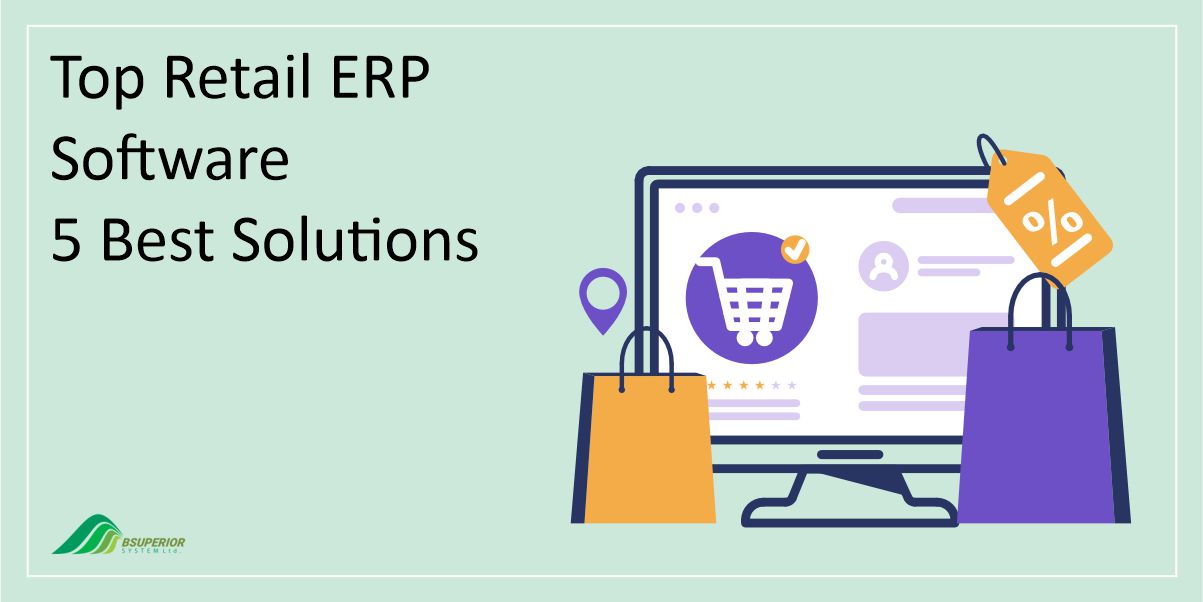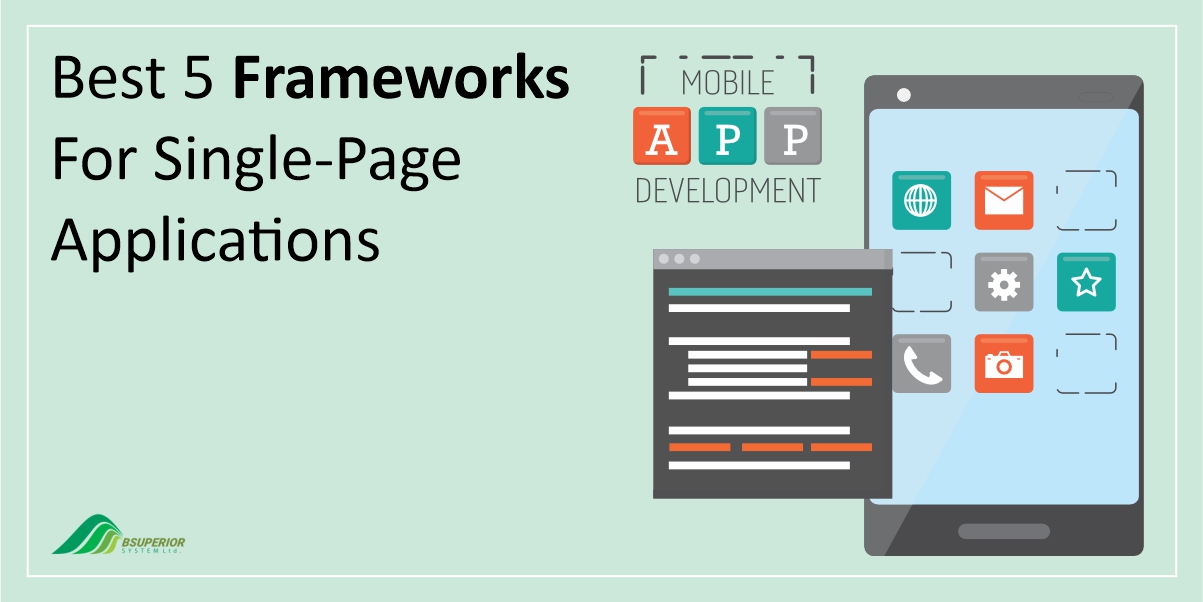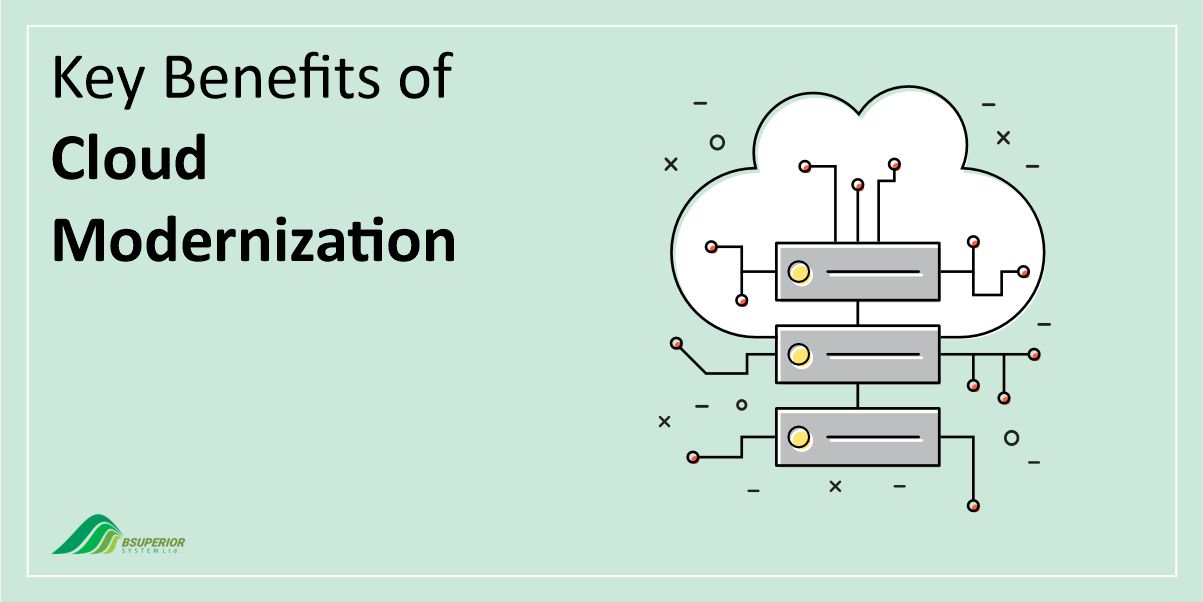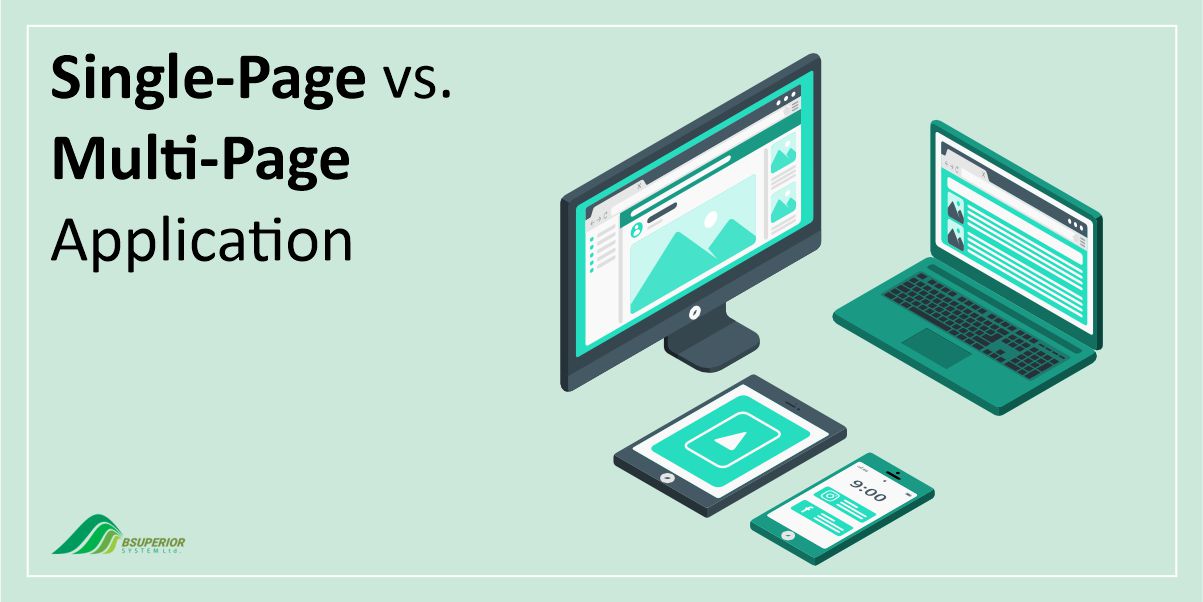ERP in Supply Chain Management: Use Cases and Benefits
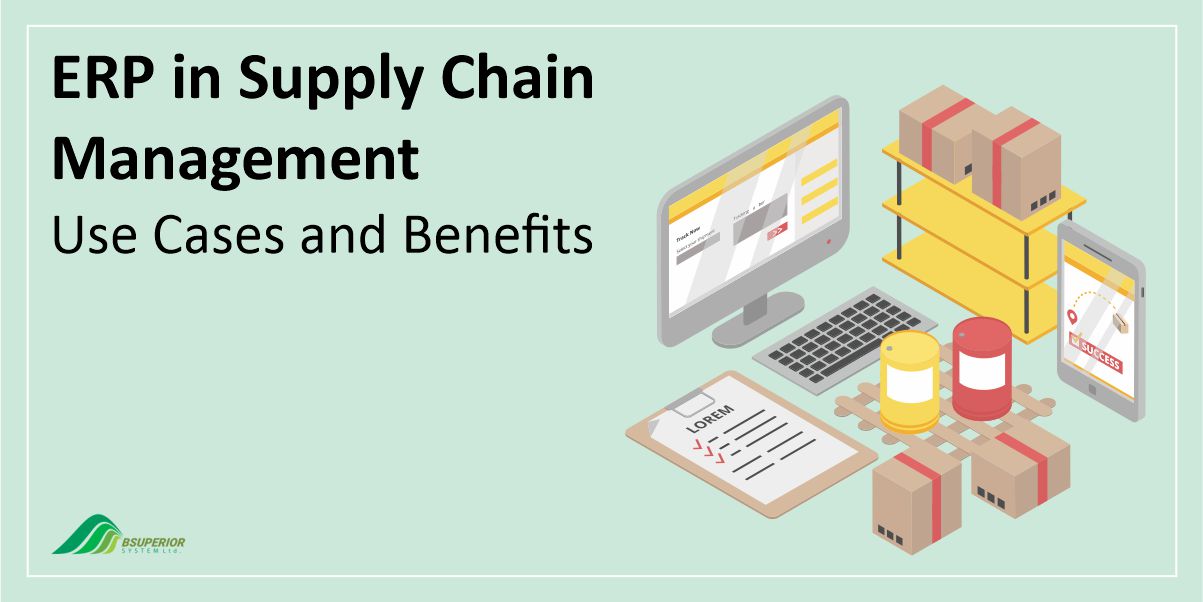
Table Of Content
- What is a Supply Chain Management System?
- What is ERP in Supply Chain Management?
- What is the Role of ERP in Supply Chain Management?
- What are the Benefits of ERP for Supply Chain Management?
- Must-Have Features For Your Supply Chain ERP
- Finding the Perfect Supply Chain ERP Fit: 8 Key Steps
- Custom vs. Packaged ERP: Choosing the Right Fit For Your Business
- Unleash Supply Chain Agility with BSUPERIOR’s Custom ERP Solutions
Gone are the days of fragmented data and disconnected processes. In today’s cutthroat supply chain landscape, ERP systems have become the conductor that harmonize operations into a unified symphony of efficiency.
Forget siloed finance, manufacturing, and inventory. ERP breaks down these walls, integrating every aspect of your business into a single, powerful platform.
But why is ERP such a game-changer? That’s what we’ll talk about in this article. We’ll explore its crucial role, unveil its hidden benefits, and show you why ERP is the missing piece to your supply chain masterpiece.
What is a Supply Chain Management System?
Imagine a system that bridges the gap between what you need and what you have. That’s essentially what a supply chain planning management system (SCMS) is.
It’s the conductor of the complex orchestra of materials, information, and finances that flow from raw materials to satisfied customers.
This system juggles three main flows:
- Material: The physical movement of goods, both to and from customers (think returns or repairs).
- Information: Keeping everyone in the loop on orders and deliveries, like GPS for your stuff.
- Financial: Money matters, with terms, invoices, and ownership agreements ensuring smooth transactions.
But it’s not just about logistics. SCM also fosters trust and collaboration among all players, from suppliers and manufacturers to distributors, retailers, and even the customer at the end of the line.
Read more: What is ERP in Procurement? Role and Benefits
What is ERP in Supply Chain Management?
Now that you know what a SCM system is, let’s talk about ERP in this system. Imagine a digital conductor orchestrating your entire supply chain.
ERP systems for supply chain management act as that conductor, integrating and streamlining every stage, from sourcing materials to delivering finished products.
This comprehensive suite of software tools gives you end-to-end visibility and control, from procurement and inventory management to production planning and logistics.
It’s a centralized platform connecting your team, suppliers, and customers, fostering seamless collaboration and information flow, ultimately optimizing your supply chain for efficiency and success.
What is the Role of ERP in Supply Chain Management?
ERP software plays a crucial role in modern supply chain management, acting as the central hub for an organization’s logistics and operations.
It’s like the conductor of an orchestra, harmonizing various aspects of the supply chain to create a smooth and efficient flow.
Let’s have a closer look at the key functionalities of ERP in SCM:
Integration and Centralization
ERP acts as a unifying force, integrating diverse aspects of supply chain management like procurement, production, inventory, distribution, and demand forecasting.
This centralized data hub provides a single reliable source of information for all stakeholders, fostering more informed decision-making and coordinated processes.
Real-Time Visibility
ERP grants real-time visibility into inventory levels, order statuses, and production schedules. This comprehensive view empowers stakeholders to manage demand fluctuations, reduce lead times, and adapt to changing circumstances with agility.
Demand Forecasting
Integrated forecasting modules leverage historical data and advanced analytics to predict future demand patterns. This allows organizations to optimize inventory levels and ensure efficient fulfillment of customer needs.
Cost Control
By streamlining processes, minimizing waste, and providing real-time financial insights, ERP helps optimize inventory levels and control costs throughout the supply chain. This translates to reduced operational expenses and improved profitability.
Supplier Collaboration
Breaking down communication barriers, ERP fosters seamless collaboration with suppliers. This facilitates efficient order processing, strengthens supplier relationships, and leads to a more reliable and cost-effective supply chain network.
Automation
ERP automates repetitive tasks across various supply chain functions, such as inventory management, order processing, and demand forecasting. This frees up human resources for more strategic tasks, enhances productivity, and reduces operational costs.
To sum up, ERP doesn’t just manage the supply chain; it transforms it. By integrating data, providing real-time insights, and automating processes, ERP allows organizations to optimize operations, reduce costs, and ultimately, deliver consistent value to their customers.
Read more: ERP Integration: Benefits and Everything Else You Need to Know
What are the Benefits of ERP for Supply Chain Management?
ERP systems are more than just software – they’re strategic partners in optimizing your supply chain. Let’s explore how ERP unlocks a treasure trove of benefits, empowering you to navigate the ever-evolving landscape of modern business:
1. Planning For Prosperity
By analyzing demand patterns and market trends, ERP helps you predict inventory needs accurately. This translates to optimized stock levels, minimizing overstocking and saving you from unnecessary expenses.
2. Purchasing Powerhouse
ERP streamlines the process, making it faster, more efficient, and less prone to human error. Data-driven decisions become the norm, and ensure you get the right materials at the right time and price.
3. Documentation Dynamo
ERP automates document generation and processing, including invoices and cross-border shipment paperwork. This not only saves time and resources but also improves accuracy and compliance.
4. Tailored to Triumph
ERP’s customization capabilities are unmatched. You can adapt the system to your specific needs and workflows, seamlessly integrating it with existing processes and systems. Think of it as a puzzle piece that fits perfectly into your unique business landscape.
5. Customer Centricity
ERP empowers you to track and monitor customer concerns effectively. This leads to improved communication and enhanced assistance across all channels that will ultimately boost customer satisfaction and loyalty.
6. Security Sentinel
Data security is paramount, and ERP takes it seriously. Customizable systems offer flexibility while ensuring adequate data encryption.
Regular system updates further bolster security, minimizing the risk of breaches and protecting your valuable information.
In essence, ERP is a game-changer for supply chain management. It unlocks a wealth of benefits, from optimized inventory and streamlined purchasing to improved customer service and enhanced security.
By investing in this powerful tool, you pave the way for increased efficiency, reduced costs, and a competitive edge in the marketplace.
Must-Have Features For Your Supply Chain ERP
Choosing the right SCM ERP is like picking the perfect teammate for your supply chain. It should empower you to be faster, smarter, and more connected than ever before. Here’s a breakdown of crucial features to keep in mind:
1. Automation Engine
Look for a system that automates repetitive tasks like data entry, order processing, and inventory management. This frees up your team for strategic activities and increases overall productivity.
Advanced systems may incorporate AI and machine learning to analyze data and generate actionable insights for production, sales, and other areas.
2. Bottleneck Buster
Choose an ERP with capabilities like production scheduling, distribution planning, and demand forecasting. These tools help you identify and address potential bottlenecks before they disrupt your workflow, leading to a more agile and adaptable supply chain.
3. Communication Catalyst
An effective SCM ERP integrates internal departments, suppliers, and vendors in a single platform. This fosters seamless communication and collaboration and makes sure that everyone is on the same page and working towards shared goals.
4. Customer Champion
To retain customers, proactive problem-solving and quick response are essential. Choose an ERP with robust customer relationship management and service features.
This allows easy access to customer data and interactions, enabling you to anticipate issues, address concerns promptly, and build lasting relationships.
5. Financial Fortress
A powerful accounting and finance module is crucial. Look for one that automates tasks like invoice processing, cost estimation, and receipt management.
This improves financial accuracy, provides real-time performance insights, and helps optimize operations.
Read more: What is ERP in Manufacturing? Modules and Benefits
Finding the Perfect Supply Chain ERP Fit: 8 Key Steps
Selecting the right ERP system for your supply chain is a game-changer, paving the way for efficiency and a competitive edge. But finding the ideal software amidst a sea of options can feel daunting. This is a roadmap to guide you through the maze:
Step 1: Know Your Journey:
Before embarking on your ERP quest, take a deep dive into your current supply chain processes. Identify roadblocks, potential pitstops, and your ultimate destination – what do you want your perfect system to achieve?
This self-discovery ensures you choose a system that aligns with your unique needs, not just the latest bells and whistles.
Step 2: Scout the Vendors:
Once you know your terrain, research vendors specializing in supply chain ERP. Don’t settle for generic options. Instead, seek brands proven to navigate the challenges specific to your industry.
Step 3: Think Beyond Today:
Choosing an ERP is a long-term commitment. Pick a system that can grow with your business, adapting to your evolving needs without requiring a complete overhaul in a few years.
Step 4: Bridge the Gaps:
Ensure your chosen ERP can seamlessly integrate with your existing software landscape. Imagine information flowing effortlessly between systems, not getting stuck in compatibility gaps.
Step 5: Tailor the Experience:
Customization is key. Look for an ERP that can be molded to your unique supply chain processes, eliminating the need for complex workarounds and ensuring smooth sailing for your operations.
Step 6: Mind the Budget:
ERP implementation isn’t just about acquiring software. Consider the total cost of ownership, including licensing, setup, training, and ongoing maintenance. Choose a system that fits your budget without sacrificing functionality.
Step 7: Keep it Simple:
Even the most powerful ERP is useless if users struggle to navigate it. Prioritize a system with a user-friendly interface that inspires adoption, not frustration. Keep in mind that happy users are the fuel that drives your supply chain efficiency.
Step 8: Find a Reliable Guide:
Choose a vendor who offers comprehensive support and training throughout the implementation process and beyond. Having a reliable guide by your side can make all the difference in navigating the initial bumps and ensuring long-term success.
Custom vs. Packaged ERP: Choosing the Right Fit For Your Business
Shopping for an ERP system can feel like trying on shoes – what fits one perfectly might pinch another. That’s why understanding the difference between custom ERP software and packaged solutions is crucial.
As we mentioned above, start by analyzing your business inside-out. What are your specific workflows, challenges, and goals? This self-discovery will help you identify the features and functionalities that will truly be your allies in the fight against inefficiency.
Next, consider the long game. Scalability is key. Your ERP should adapt and grow alongside your business, whether you’re a nimble startup or a seasoned industry veteran. Don’t get stuck with a system that will leave you behind in the dust.
Finally, don’t forget that your ERP shouldn’t be an island. Make sure it plays well with others, seamlessly integrating with your existing systems like CRM, warehouse management, and inventory control. This teamwork will streamline operations, eliminate data silos, and unleash a symphony of efficiency.
Bear in mind that the perfect ERP isn’t a one-size-fits-all cape. Consider your needs, scalability, and integration potential. With careful analysis, you’ll find the ERP that elevates your business to superhero status
Unleash Supply Chain Agility with BSUPERIOR’s Custom ERP Solutions
Exhausted by the tangled maze of global supply chains? BSUPERIOR cuts through the complexity with adaptive, custom-built ERP solutions for a connected, streamlined network.
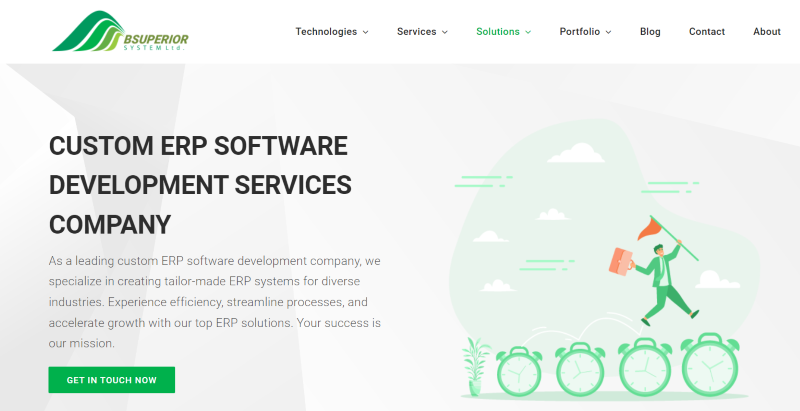
We tackle the multifaceted challenges of cross-border trade, forecasting, warehousing, space management, and more, giving you full control and visibility.
BSUPERIOR is more than just ERP software. We’re ERP architects. We craft tailor-made systems for diverse industries, ensuring your unique needs are met.
Experience efficiency gains, streamlined processes, and accelerated growth. Your success is our mission.
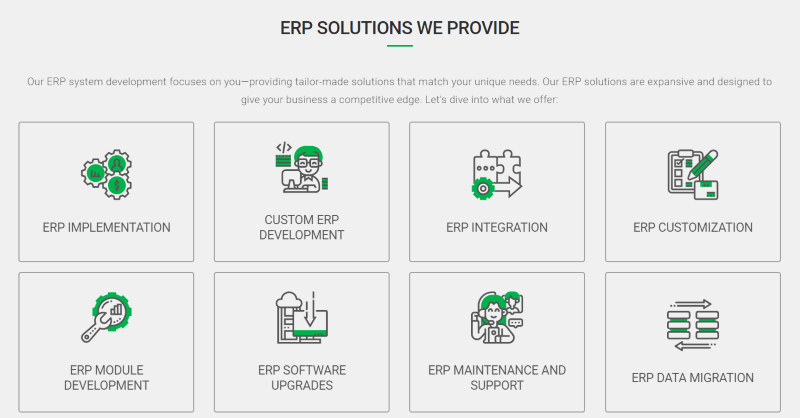
Why Choose BSUPERIOR?
- Tailor-Made Solutions: We don’t believe in one-size-fits-all. Your ERP system is as unique as your business.
- Expansive Capabilities: From trade compliance to warehouse optimization, we cover all aspects of your supply chain.
- Competitive Edge: Gain agility, transparency, and control to outpace your competitors.
Your success is our focus: We’re dedicated to partnering with you for long-term growth. Ready to unshackle your supply chain and unlock your full potential? Contact BSUPERIOR today. Let’s design the perfect ERP roadmap for your business.
We value your input and believe this content may enhance our services. However, it's under review. If you see room for improvement, please use the "Report an issue" button below. Your feedback helps us excel.
Contact us today at –– and speak with our specialist.

